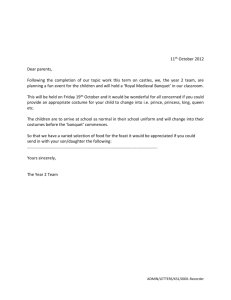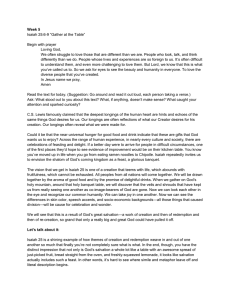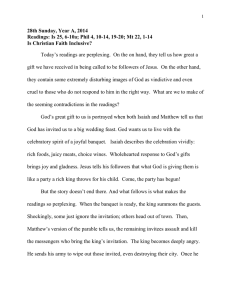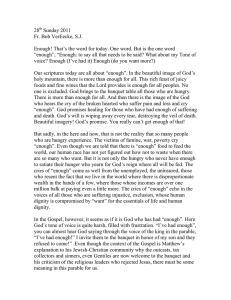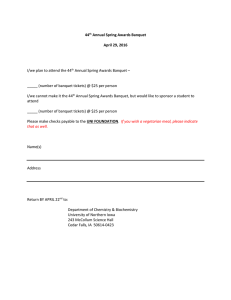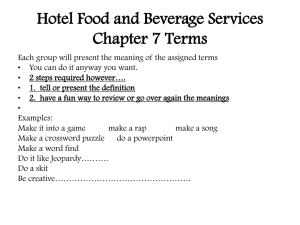28 Sunday in Ordinary Time October 9, 2011 10 AM Liturgy
advertisement
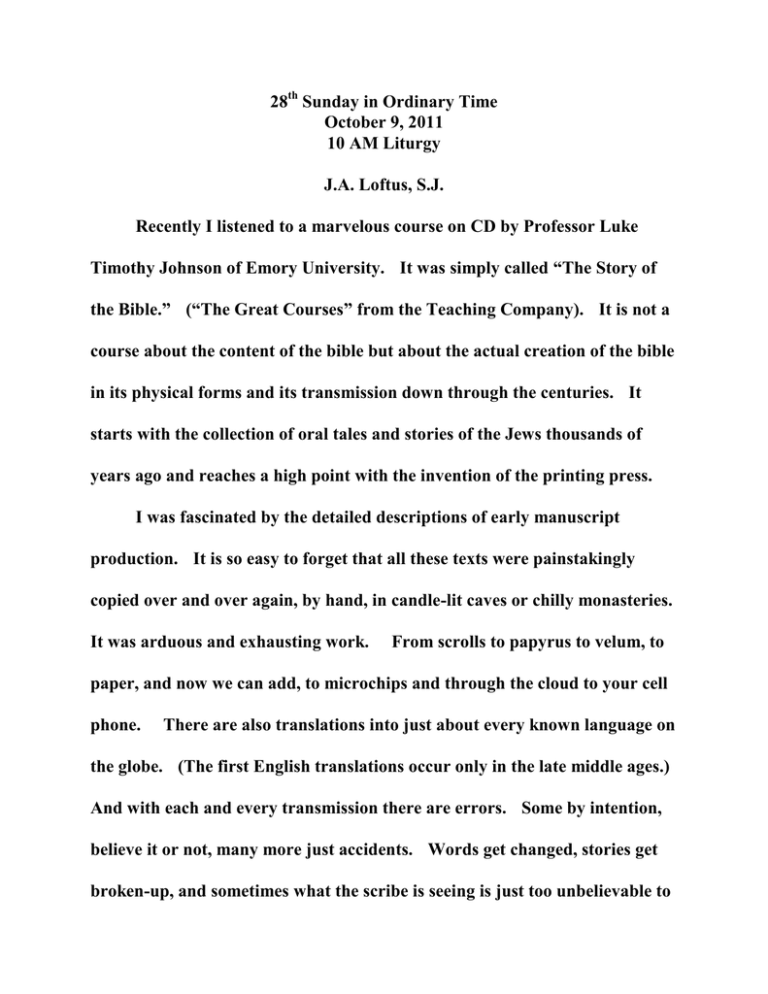
28th Sunday in Ordinary Time October 9, 2011 10 AM Liturgy J.A. Loftus, S.J. Recently I listened to a marvelous course on CD by Professor Luke Timothy Johnson of Emory University. It was simply called “The Story of the Bible.” (“The Great Courses” from the Teaching Company). It is not a course about the content of the bible but about the actual creation of the bible in its physical forms and its transmission down through the centuries. It starts with the collection of oral tales and stories of the Jews thousands of years ago and reaches a high point with the invention of the printing press. I was fascinated by the detailed descriptions of early manuscript production. It is so easy to forget that all these texts were painstakingly copied over and over again, by hand, in candle-lit caves or chilly monasteries. It was arduous and exhausting work. From scrolls to papyrus to velum, to paper, and now we can add, to microchips and through the cloud to your cell phone. There are also translations into just about every known language on the globe. (The first English translations occur only in the late middle ages.) And with each and every transmission there are errors. Some by intention, believe it or not, many more just accidents. Words get changed, stories get broken-up, and sometimes what the scribe is seeing is just too unbelievable to copy. So it gets changed. Who will know? If you don’t believe me, just try writing yourself a letter in long-hand and then try to copy it (again long-hand) ten times. See what you get at the end. We have, most likely, in today’s gospel a clear example of one such “transmission error.” What we have just heard are two different parables sandwiched together and in a rather bizarre way. Perhaps a monk was taste-testing the old wine cellar that day! So I hope you feel at least a bit consoled if the gospel I just read did not make a lot of sense to you. Why would a king who has just invited all the rabble in off the streets to his wedding feast then get outraged that one guest was not wearing appropriate attire? What did he expect? Don’t you think the king is over reacting a bit? He has the man bound and thrown into darkness with weeping and gnashing of teeth. Whew! A bit excessive, no? But if this is actually a snippet from an all-together different wedding feast story? Now that makes more sense. That story was about preparing yourself spiritually for the coming banquet, clothing your heart correctly. Don’t think any of us get to share Isaiah’s banquet with its “juicy, rich food, and pure, choice wines” without dressing our hearts for the occasion. This is a spiritual parable for all to hear. The first part of today’s gospel story is completely different and with a different message, all they share in common is the banquet setting. And this first story is not a parable at all really, it is another one of Matthew’s allegories. A similar story appears in Luke and in the second century Gospel of Thomas. But Matthew has some clear distinguishing marks. Only Matthew makes it a story about a king and his son, God and Jesus. And the invited guests, i.e. the Jewish religious and civil leaders, refuse to come to the banquet. So the king allows their city to be sacked and burned. At the time Matthew is writing this passage, all this has just happened. Jerusalem was once again destroyed and the Temple burned in 70 AD. The Jews and Gentiles in Matthew’s original audience knew exactly what this allegory was about. They were living through it. This parable is a historical interpretation meant for them, Matthew’s contemporaries. Well, where exactly does this piece of erudite scriptural education leave us? There are still lessons here–for us and for today. While St. Paul this morning sounds very much like Ignatius in his description of his own indifference to food (“I have learned the secret of being well fed and of going hungry,” he says), both Isaiah and Matthew are urging us to get ready for a “Babette’s Feast” being prepared for us. Yes, for you and me! A great banquet of treats worth repeating for Isaiah: “a feast of rich food and choice wines, juicy rich food and pure, choice wine.” There is a holy mountain waiting where the Lord of hosts rests. Or as Psalm 23 says it: “You spread the table before me in the sight of my foes; you anoint my head with oil; my cup overflows. This is the great Messianic Banquet prepared for the earth before the beginning of time. This banquet is one of the most enduring images we have of what the end-times might look like–and taste like. And it is our for the asking. At least the chilly monks in their dim cells did not cut that part out. But to switch stories again for a minute, the least we can do is prepare ourselves to be dressed appropriately for the feast. It is a feast after all. And we might not even need weight watchers. Bon appétit!
